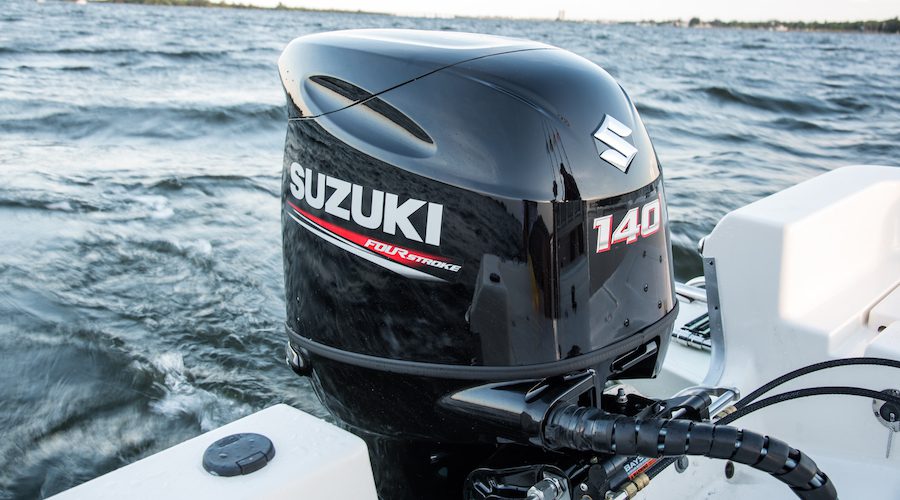The Suzuki outboard boat engine has garnered widespread acclaim due to its exceptional performance, unwavering reliability, and impressive lifespan. Owning a boat with a Suzuki outboard boat engine is a gateway to adventure on the open water. To ensure that your boating experiences remain trouble-free and your engine performs at its best, regular maintenance is crucial. One of the significant milestones in engine maintenance is the 100-hour service. In this article, we’ll provide a comprehensive checklist to guide you through the essential tasks and inspections needed to keep your Suzuki outboard boat engine running smoothly and reliably.
The Importance of the Suzuki Outboard Engine 100-Hour Service
The 100-hour service is a pivotal maintenance milestone for your Suzuki outboard engine. It goes beyond routine checks; it’s a proactive measure to identify and address potential issues while ensuring the longevity of your engine. By adhering to this checklist, you not only maintain peak performance but also detect and resolve emerging problems before they become significant concerns.
Engine Oil and Filter
The first step in your 100-hour service checklist is changing the engine oil and replacing the oil filter. This is essential to ensure that the engine’s internal components remain well-lubricated and free from contaminants. Make sure to use the recommended oil and filter type specified in your Suzuki owner’s manual.
Fuel System Inspection
Inspect the entire fuel system, from the tank to the injectors. Look for signs of leaks, damaged fuel lines, or clogged filters. Clean or replace fuel filters as necessary, ensuring that the entire system is free from obstructions, which is important for optimizing engine performance.
Spark Plugs
Efficient engine operation is dependent on healthy spark plugs. Check and replace spark plugs at the 100-hour mark to maintain engine performance. Ensure that the new spark plugs are correctly gapped as per the specifications outlined in your Suzuki outboard engine manual.
Cooling System
Examine the cooling system for signs of corrosion or blockages. Flushing the cooling system and replacing the impeller are essential to maintain proper engine cooling. Overheating can lead to severe engine damage, so optimizing the cooling system is critical.
Grease Fittings
To minimize friction and ensure smooth operation, inspect and lubricate all grease fittings. This includes the propeller shaft, steering components, and other moving parts. Proper lubrication extends the life of these components, optimizing engine performance.
Battery and Electrical System
Test the battery to ensure it retains a charge and clean any corrosion from the terminals. Inspect the wiring, connectors, and ignition system for damage or loose connections. Ensure that all electrical components, such as lights and instruments, function correctly for optimal engine performance.
Anode Inspection
Anodes are components that protect your engine from corrosion. In your 100-hour service, examine these anodes for wear and replace them if they show significant signs of deterioration. Maintaining anodes is a key factor for engine longevity.
Propeller and Gearcase
Inspect the propeller for damage or wear and check for any fishing line entanglements. Examine the gearcase for leaks and replace the gear oil. A damaged propeller or gearcase can lead to performance issues and potential engine damage, so inspecting these components is essential.
Throttle and Shift Cables
Efficient engine operation depends on the smooth operation of throttle and shift cables. Check these cables for proper functioning and lubricate them as needed. They should move smoothly to ensure accurate control of your engine.
Steering System
Examine the steering system, including the cables and connections, to ensure it functions correctly. Smooth and responsive steering is necessary for safe and efficient engine operation.
Compression Test
As part of your 100-hour service checklist, perform a compression test to evaluate the engine’s overall health. Significant variations in compression levels among cylinders may indicate problems that need further investigation. Optimal engine performance requires maintaining consistent compression.
Professional Inspection
For those who want to ensure the highest level of engine performance, consider having a professional technician perform a comprehensive inspection of your engine at the 100-hour mark. Marina Bay Harbor has a team of expert technicians that can assist you in anything engine related. Our experts can catch issues that may not be apparent during a standard checklist inspection, further optimizing engine performance and ensuring a reliable and efficient engine. Marina Bay Harbor holds certifications for conducting warranty, servicing, and repair tasks on Suzuki, Mercury, and Yamaha engines.
The Suzuki Outboard Boat Engine 100-Hour Service Checklist is an invaluable tool for ensuring the performance and longevity of your engine. By adhering to these recommended tasks and inspections, you can enjoy many more hours of smooth and trouble-free boating. Efficient engine maintenance not only saves you money on costly repairs but also ensures a safer and more enjoyable experience on the water. Always consult your Suzuki owner’s manual for specific maintenance intervals and guidelines to keep your engine running in optimal condition. For further assistance please contact our Service center department at Marina Bay Harbor.

